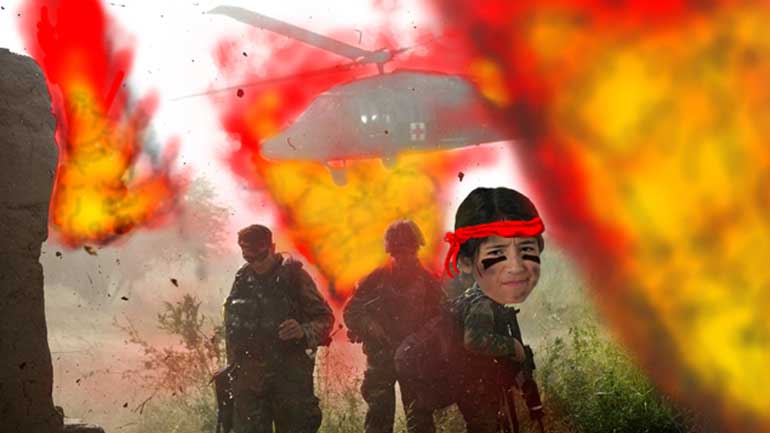ShmoopTube
Where Monty Python meets your 10th grade teacher.
Search Thousands of Shmoop Videos
War and Warfare Videos
Play All
Well, if this book doesn't make you want to tape over your laptop camera, we don't know what will.
By the end of this video, you will be brainwashed. There's nothing you can do about it; we just wanted to let you know. We like to think we're bigg...
You might be hearing a chorus of farewells if you recommend A Farewell to Arms as the next read for your Fabulously Feisty Feminist Book Club.
Have you ever pretended to be super happy for your BFF when they win an award when, really, you just wanted to rip it out of their undeserving, ung...
It may be the best of times for Chuck Darnay, but it's pretty much constantly the worst of times for Sydney. Poor guy.
“Happy Hunger Games!” Or not. Katniss’s Hunger Games experiences left a not-so-happy effect on her. This video will prompt you to ponder if...
She was just a girl who found herself in some unimaginably awful circumstances. If you feel like gaining some valuable perspective on the drama in...
This video discusses the important ladies of The Sun Also Rises…make that the one important lady. Brett is the only major female character in the...
Stephen Crane wrote The Red Badge of Courage about the Civil War not long after the war had ended. And get this: he didn't even fight in the war. W...
We volunteer you as tribute to watch this video analysis of Katniss in the second book of the Hunger Games series. After the berry suicide attempt...
Meet Charles Darnay, the nobleman who spends more time on trial and in prison than attending balls and drinking expensive wine. Don't feel too bad...
Under what circumstances should people be allowed to lie? Is Annemarie's situation dire enough? Shmoop amongst yourselves.
A word to the wise: secret marriages don't work out well in Shakespeare plays. Just ask Othello and Desdemona.
We wish the Tralfamadorians were as fun as they sound. But unfortunately, they're your garden variety kidnap-humans-and-torture-them type of alien.
Pious Aeneas goes from minor character in the Trojan War to founder of Rome, the city that conquered the world, meetin' ladies and experiencing maj...
Pious Aeneas strikes again. This time, with more destiny and hand-to-hand combat! (Of course, since we're talking about Aeneas, he's still harping...
So that's why Brad Pitt looks so fit in Troy! (The movie, not the city-state.) He's related to the gods, just like Achilles was. We always knew kne...



















